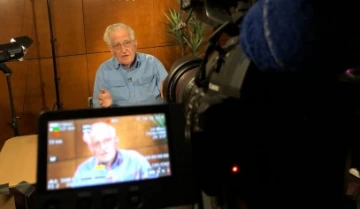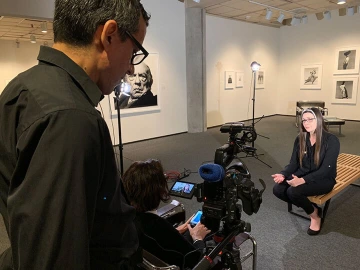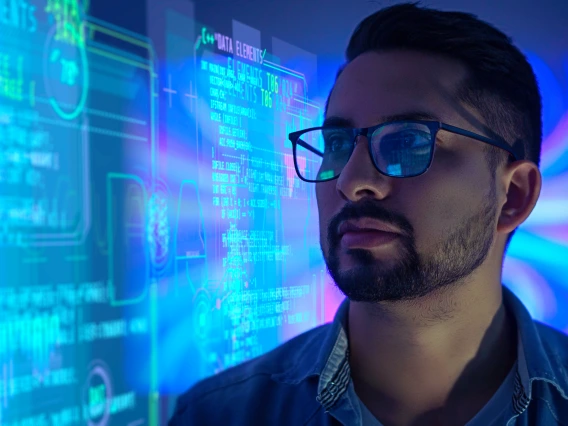
Focusing on Student Needs Makes Online Learning Accessible
Recently, we introduced you to the Arizona Online team, and in the past, you've met some of our incredible student advisors.
Meet another outstanding team member: Luis Carrión. Carrión is a Lead Producer and Videographer in the Office of Digital Learning, the University of Arizona's premier hub for online higher education programs and online learning tools.
Carrión is an award-winning producer/videographer and has received eight regional Emmy Awards for his video productions! Carrión focuses on presenting complex academic subject matter in an accessible and engaging way. Let's learn more about Carrión's role at Arizona Online.
Arizona Online: How do you work with instructors to create compelling, engaging, and accessible online courses for Arizona Online?
Carrión: At The University Center for Assessment, Teaching and Technology (UCATT) Multimedia, we combine pedagogically-supported online course design with professional multimedia production to create engaging educational content. This maximizes the course materials' impact and improves the learning experience.
We meet with each instructor to discuss their course objectives and learning outcomes. We also take the time to understand their research and background so that we can tell their story in the online classroom. That initial consultation or pre-planning meeting allows us to determine how we can effectively use video and multimedia for the course content.
LEARN MORE ABOUT THE ARIZONA ONLINE STUDENT EXPERIENCE










